Bachelor of Computer Application
2025-09-25 8:04Bachelor of Computer Application
Bachelor of
Computer
Application (BCA)
Bachelor of Computer Application (BCA) Course Details.
Overview of BCA (Bachelor of Computer Applications)
Bachelor of Computer Application, isn't just another college degree – it's your gateway to a dynamic, tech-infused world where innovation never sleeps. This thrilling 3-year undergraduate program isn't your typical classroom experience; it's a journey into the heart of the digital realm. Imagine mastering the building blocks of the digital universe. With Bachelor of Computer Application, you delve into the captivating realms of programming languages like Java, C, HTML, SQL, C#, and PHP. These aren't just languages; they're the magic words that breathe life into software and applications that power our modern world. But Bachelor of Computer Application doesn't stop at coding; it's a multifaceted adventure. You'll explore the inner workings of hardware and software, unravel the intricacies of computer networks and even craft your own slice of the World Wide Web.
BCA Course Details
To be eligible for admission to a BCA program, candidates typically need to meet the following criteria:
Completion of 10+2 (or equivalent) from a recognized board.
A background in Mathematics or Computer Science in high school is preferred (though not always mandatory).
Minimum aggregate marks may vary by institution, usually ranging from 45% to 60%.
Some universities may conduct entrance exams or personal interviews.
The admission process for BCA may include:
- Direct Admission: Institutions offer direct admission based on academic performance.
- Application Process:
- Fill out the online/offline application form.
- Submit required documents (mark sheets, ID proof, etc.).
- Attend counseling or interview rounds.
- Fill out the online/offline application form.
The BCA program is typically a 3-year undergraduate course divided into 6 semesters. The curriculum includes:
Core Subjects:
- Programming Languages (C, C++, Java, Python)
- Data Structures
- Operating Systems
- Database Management Systems
- Computer Networks
- Web Development
- Software Engineering
- Programming Languages (C, C++, Java, Python)
Electives/Specializations (in later semesters):
- Mobile App Development
- Cloud Computing
- Artificial Intelligence
- Cyber Security
- Data Analytics
- Mobile App Development
Additional Components:
- Projects
- Internships
- Soft Skills & Communication Training
- Projects
BCA graduates have a wide range of career options in the IT and tech industry:
Software Developer
Web Developer
System Analyst
Network Administrator
Database Manager
IT Support Specialist
Cyber Security Analyst
Mobile App Developer
Data Analyst
Further studies like MCA, MBA in IT, or specialized certifications (AWS, Cisco, etc.) can enhance career prospects.
To succeed in a BCA program and the tech industry, students should cultivate the following skills:
Proficiency in programming languages
Analytical and logical thinking
Problem-solving ability
Strong communication skills
Teamwork and collaboration
Time management
Adaptability to new technologies
BCA Salary Expectations
Salary packages vary depending on job role, experience, and location. Here’s a general range:
| Role | Average Starting Salary (India) |
| Software Developer | ₹3 – ₹6 LPA |
| Web Developer | ₹2.5 – ₹5 LPA |
| Data Analyst | ₹4 – ₹7 LPA |
| System Administrator | ₹3 – ₹5 LPA |
| Cybersecurity Analyst | ₹5 – ₹8 LPA |
With 3-5 years of experience, professionals can expect higher packages, ranging between ₹8–15 LPA or more, especially in metro cities or with MNCs.
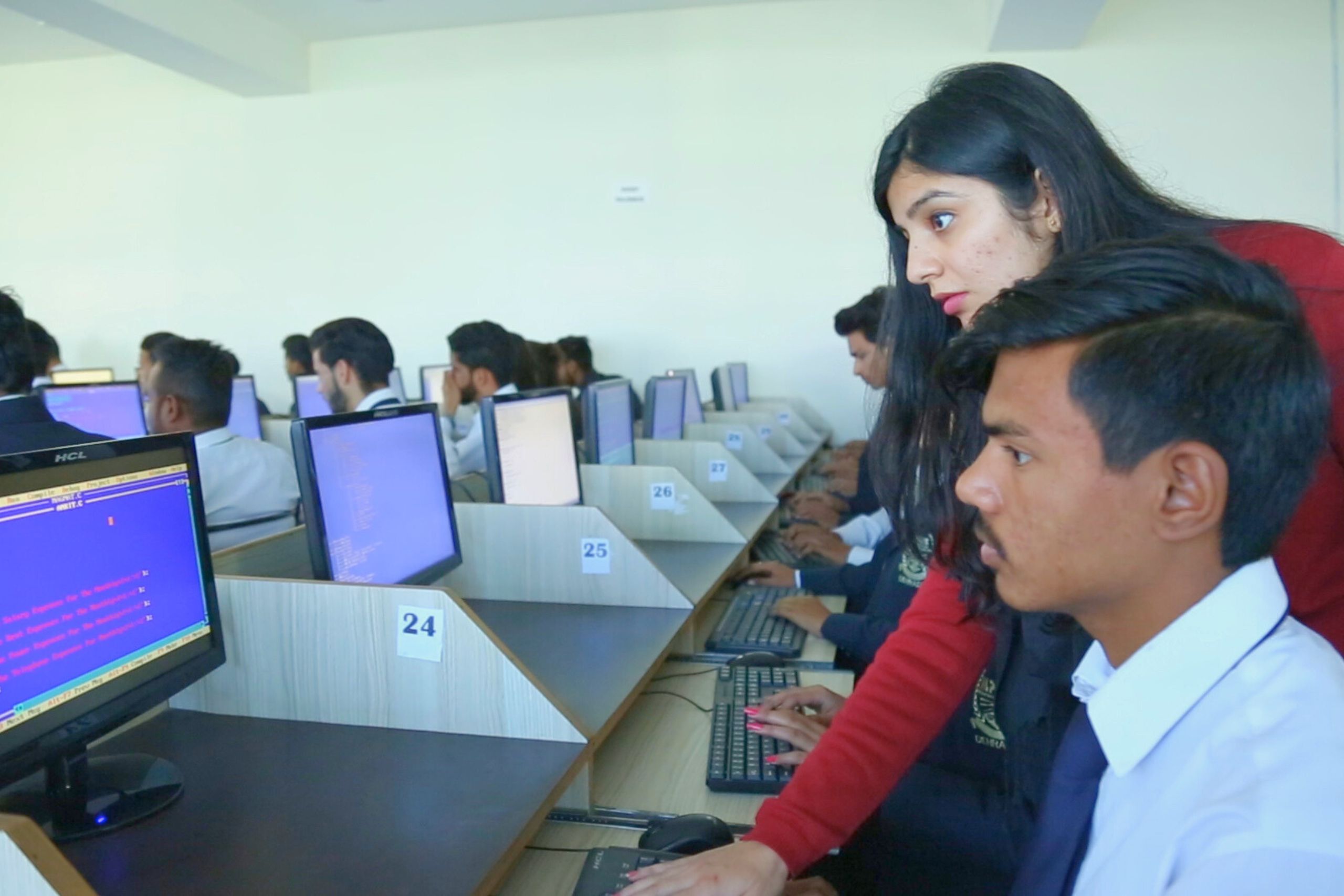
Life of a
Bachelor of Computer Application Student
Bachelor of Computer Application students live and breathe code, creativity, and tech challenges. They Master in Programming languages, build Software, and collaborate closely with peers. In this dynamic environment, they develop both technical and soft skills, ready to make their mark in the ever-changing world of Information Technology .
Download Brochure
Curriculum
FIRST SEMESTER:
S. No | Course No. | Subject | Evaluation – Scheme | Credit | |||||||
Period | Sessional | Examination | |||||||||
L | T | P | TA | CT | TOT | ES E | Sub. Total | ||||
Theory | |||||||||||
1. | SET/CSE/BCA/AE C1 | General English | 2 | – | – | 10 | 20 | 30 | 70 | 100 | 2 |
2. | SET/CSE/BCA/C10 1 | Computer Fundamental | 4 | 1 | – | 10 | 20 | 30 | 70 | 100 | 5 |
3. | SET/CSE/BCA/C10 2 | Programming in ‘C’ | 4 | – | – | 10 | 20 | 30 | 70 | 100 | 4 |
4. | SET/CSE/BCA/C10 3 | Mathematical Foundation of Computer Science | 4 | 1 | – | 10 | 20 | 30 | 70 | 100 | 5 |
Practical | |||||||||||
1. | SET/CSE/BCA/CP1 1 | Computer Fundamental Lab | – | – | 3 | 30 | – | 30 | 70 | 100 | 2 |
2. | SET/CSE/BCA/CP1 2 | Programming in ‘C’ Lab | – | – | 3 | 30 | – | 30 | 70 | 100 | 2 |
Total | 14 | 2 | 6 | 100 | 80 | 180 | 420 | 600 | 20 | ||
SECOND SEMESTER:
S. No | Course No. | Subject | Evaluation – Scheme | Credit | ||||||||
Period | Sessional | Examination | ||||||||||
L | T | P | TA | CT | TOT | ESE | Sub. Total | |||||
Theory | ||||||||||||
1. | SET/CSE/BCA/AE C2 | Environment science | 2 | – | – | 10 | 20 | 30 | 70 | 100 | 2 | |
2. | SET/CSE/BCA/C20 1 | Data Structure & File Organization | 4 | 1 | – | 10 | 20 | 30 | 70 | 100 | 5 | |
3. | SET/CSE/BCA/C20 2 | Programming in C++ | 4 | – | – | 10 | 20 | 30 | 70 | 100 | 4 | |
4. | SET/CSE/BCA/C20 3 | Database Management Systems | 4 | 1 | – | 10 | 20 | 30 | 70 | 100 | 5 | |
Practical | ||||||||||||
1. | SET/CSE/BCA/CP2 1 | Data Structure & File Organization lab | – | – | 3 | 30 | – | 30 | 70 | 100 | 2 | |
2. | SET/CSE/BCA/CP2 2 | Programming in C++ Lab | – | – | 3 | 30 | – | 30 | 70 | 100 | 2 | |
Total | 14 | 2 | 6 | 100 | 80 | 180 | 420 | 600 | 20 | |||
THIRD SEMESTER:
S. No | Course No. | Subject | Evaluation – Scheme | Credit | |||||||
Period | Sessional | Examination | |||||||||
L | T | P | TA | CT | TOT | ESE | Sub. Total | ||||
Theory | |||||||||||
1. | SET/CSE/BCA/C3 01 | Computer Networks | 4 | 1 | – | 10 | 20 | 30 | 70 | 100 | 5 |
2. | SET/CSE/BCA/C3 02 | Computer Based Numerical Techniques | 4 | – | – | 10 | 20 | 30 | 70 | 100 | 4 |
3. | SET/CSE/BCA/C3 03 | System Analysis and Design | 4 | 1 | – | 10 | 20 | 30 | 70 | 100 | 5 |
4. | SET/CSE/BCA/SE C1 | SEC1A | 2 | – | – | 10 | 20 | 30 | 70 | 100 | 2 |
Practical | |||||||||||
1. | SET/CSE/BCA/CP 31 | Computer Networks and Internet Technologies Lab | – | – | 3 | 30 | – | 30 | 70 | 100 | 2 |
2. | SET/CSE/BCA/CP 32 | Computer Based Numerical Techniques Lab | – | – | 3 | 30 | – | 30 | 70 | 100 | 2 |
Total | 14 | 2 | 6 | 100 | 80 | 180 | 420 | 600 | 20 | ||
FOURTH SEMESTER:
S. No | Course No. | Subject | Evaluation – Scheme | Credit | |||||||
Period | Sessional | Examination | |||||||||
L | T | P | TA | CT | TOT | ESE | Sub. Total | ||||
Theory | |||||||||||
1. | SET/CSE/BCA/C4 01 | Multimedia Systems and Applications | 4 | 1 | – | 10 | 20 | 30 | 70 | 100 | 5 |
2. | SET/CSE/BCA/C4 02 | Operating System Organization & UNIX | 4 | – | – | 10 | 20 | 30 | 70 | 100 | 4 |
3. | SET/CSE/BCA/C4 03 | Software Engineering | 4 | 1 | – | 10 | 20 | 30 | 70 | 100 | 5 |
4. | SET/CSE/BCA/SE C2 | SEC2A | 2 | – | – | 10 | 20 | 30 | 70 | 100 | 2 |
Practical | |||||||||||
1. | SET/CSE/BCA/CP 41 | Multimedia Systems and Applications Lab | – | – | 3 | 30 | – | 30 | 70 | 100 | 2 |
2. | SET/CSE/BCA/CP 42 | Operating System Organization & UNIX Lab | – | – | 3 | 30 | – | 30 | 70 | 100 | 2 |
Total | 14 | 2 | 6 | 100 | 80 | 180 | 420 | 600 | 20 | ||
FIFTH SEMESTER:
S. No | Course No. | Subject | Evaluation – Scheme | Credit | |||||||
Period | Sessional | Examination | |||||||||
L | T | P | TA | CT | TOT | ESE | Sub. Total | ||||
Theory | |||||||||||
1. | SET/CSE/BCA/DS E1 | DSE1A | 4 | – | – | 10 | 20 | 30 | 70 | 100 | 4 |
2. | SET/CSE/BCA/DS E2 | DSE2A | 4 | – | – | 10 | 20 | 30 | 70 | 100 | 4 |
4. | SET/CSE/BCA/DS E3 | DSE3A | 5 | 1 | – | 10 | 20 | 30 | 70 | 100 | 6 |
3. | SET/CSE/BCA/SEC 3 | SEC3A | 2 | – | – | 10 | 20 | 30 | 70 | 100 | 2 |
Practical | |||||||||||
1. | SET/CSE/BCA/EP5 1 | DSE1A Lab | – | – | 3 | 30 | – | 30 | 70 | 100 | 2 |
2. | SET/CSE/BCA/EP5 2 | DSE2A Lab | – | – | 3 | 30 | – | 30 | 70 | 100 | 2 |
Total | 14 | 2 | 6 | 100 | 80 | 180 | 420 | 600 | 20 | ||
SIXTH SEMESTER:
S. No | Course No. | Subject | Evaluation – Scheme | Credit | |||||||
Period | Sessional | Examination | |||||||||
L | T | P | TA | CT | TOT | ESE | Sub. Total | ||||
Theory | |||||||||||
1. | SET/CSE/BCA/DS E4 | DSE4A | 4 | 1 | – | 10 | 20 | 30 | 70 | 100 | 5 |
2. | SET/CSE/BCA/DS E4 | DSE5A | 4 | 1 | – | 10 | 20 | 30 | 70 | 100 | 5 |
3. | SET/CSE/BCA/SEC 4 | SEC 4A | 2 | – | – | 10 | 20 | 30 | 70 | 100 | 2 |
Practical | |||||||||||
1. | SET/CSE/BCA/EP5 1 | DSE4A Lab | – | – | 3 | 30 | – | 30 | 70 | 100 | 2 |
2. | SET/CSE/BCA/EP5 2 | Project | 2 | 2 | 6 | 50 | – | 50 | 150 | 200 | 6 |
Total | 12 | 4 | 9 | 110 | 60 | 170 | 430 | 600 | 20 | ||
Our Proud Alumni

Animesh Banerjee

Jameson

Mritunjay Chaudhary

Lakshmi S. Nath

Pasan Pavan Kalyan

Rahul Jaiswal

Shivam Kumar

Yadhika Ghatani
Photo Library
Crafting careers, fueling dreams. Where learning meets adventure, everyday.
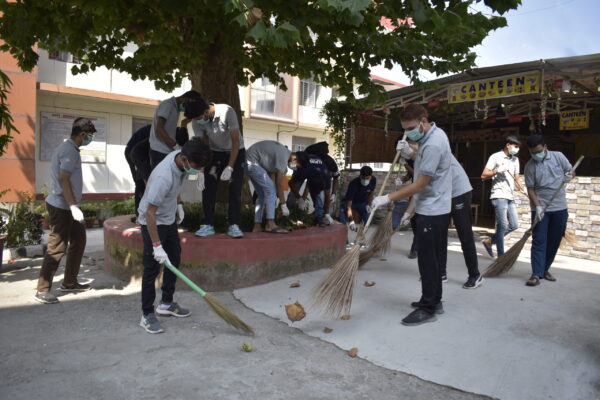
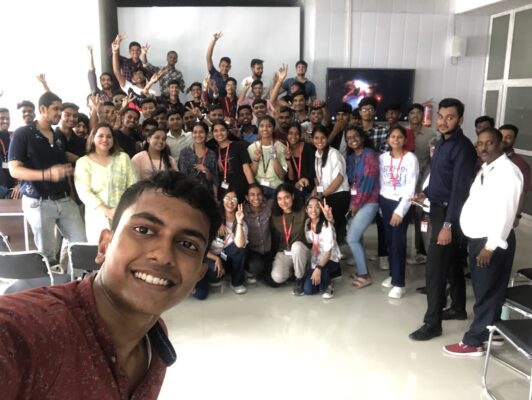
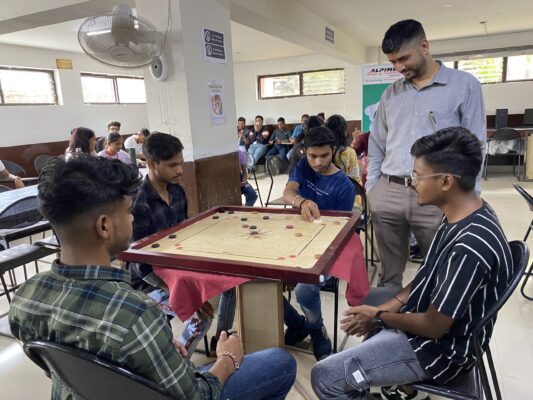
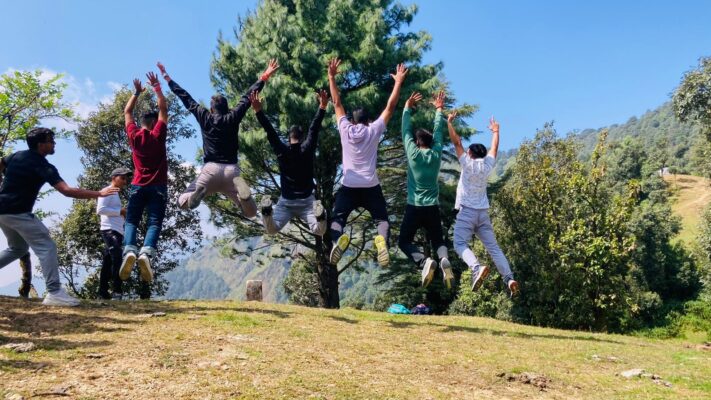
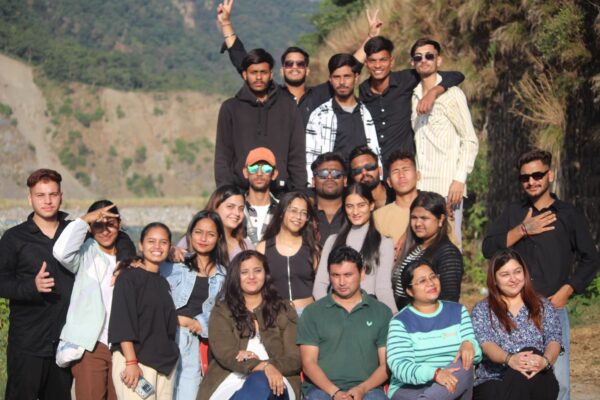
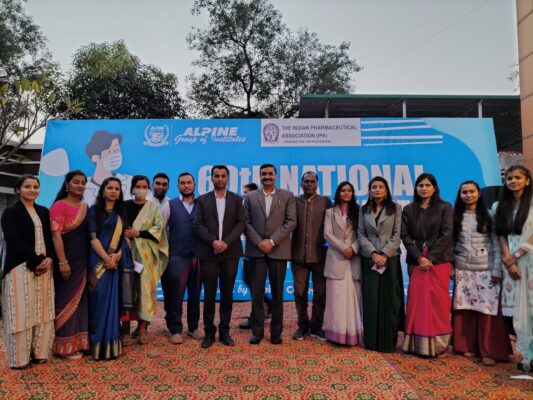
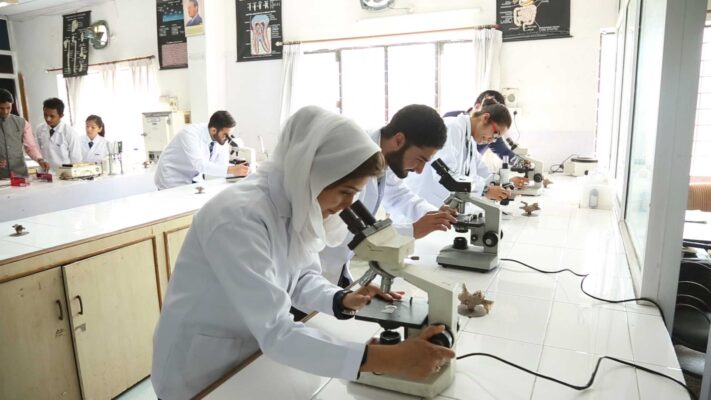
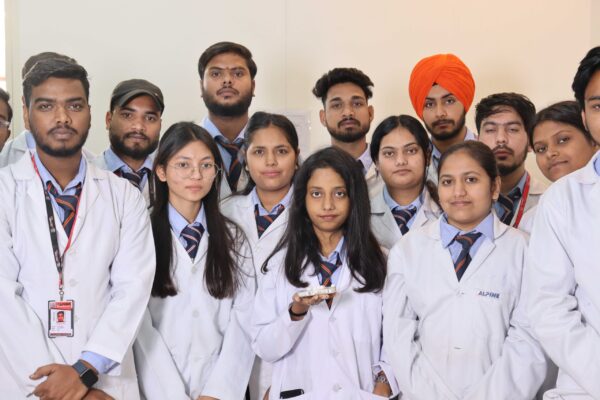
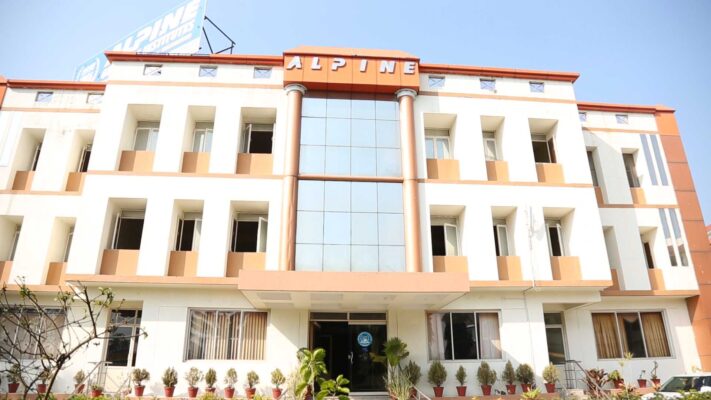
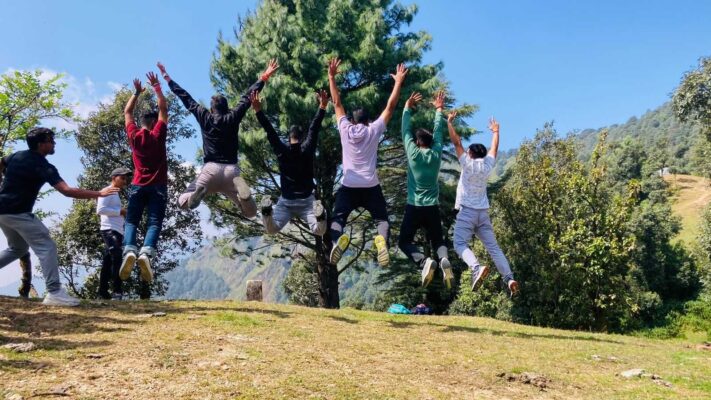
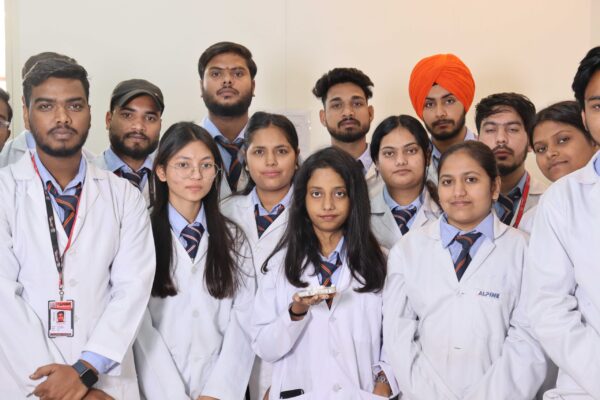
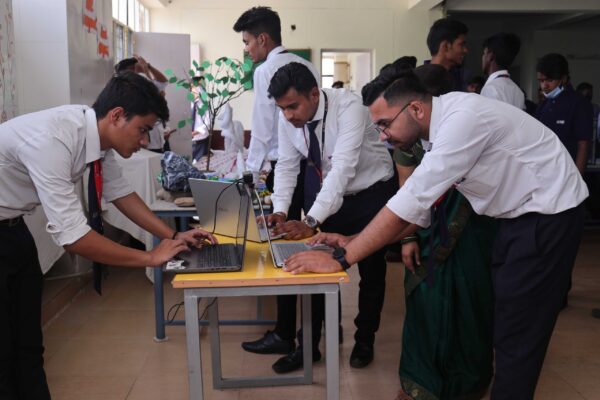
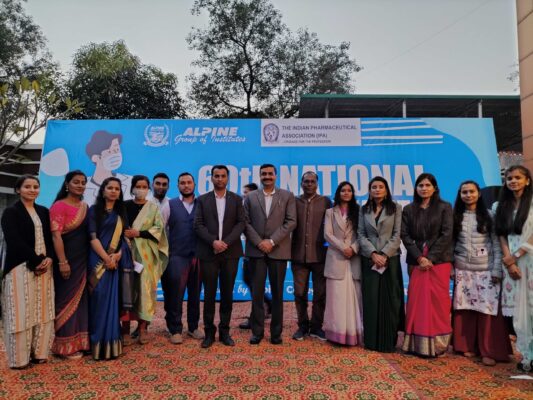
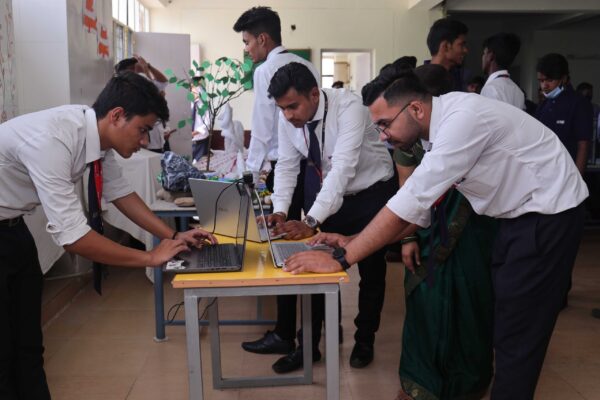
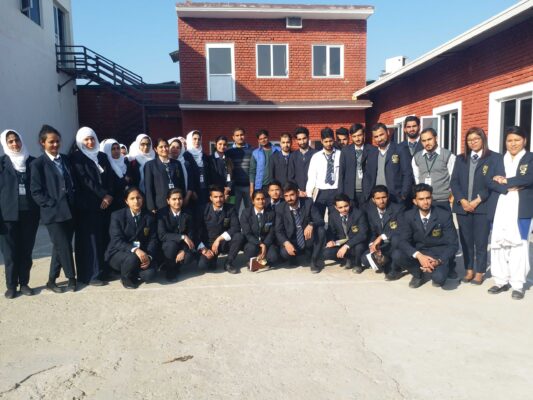
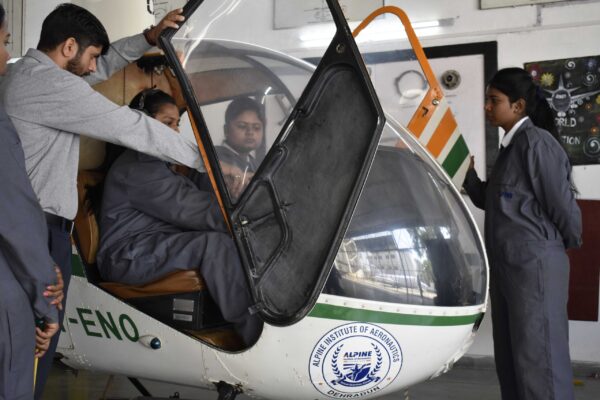
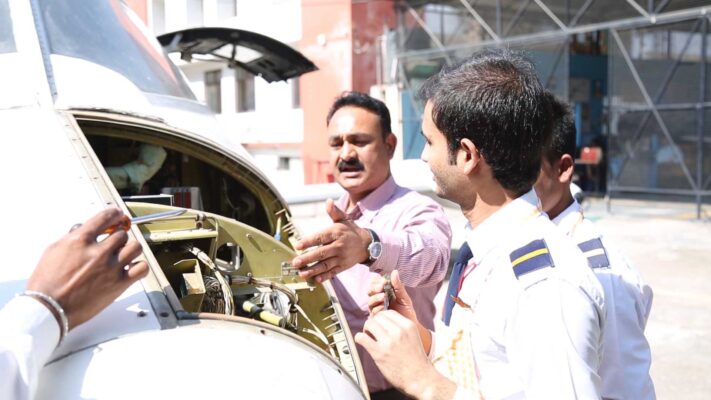
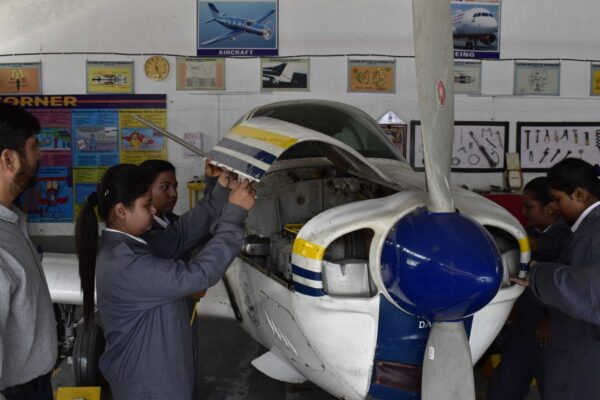

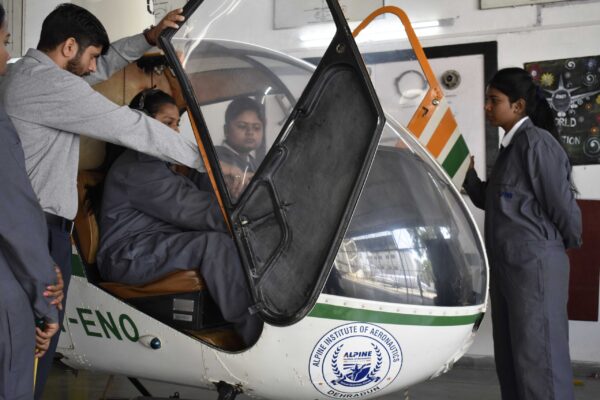
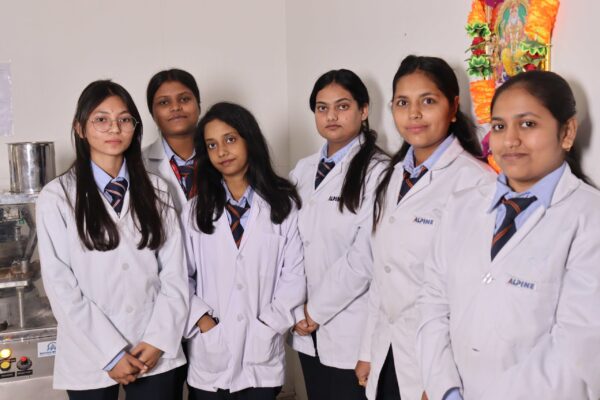
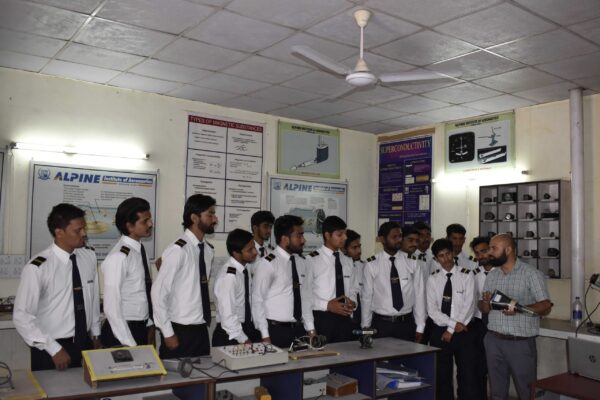
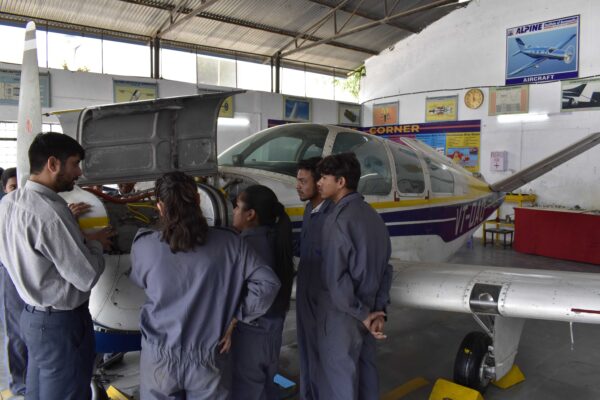
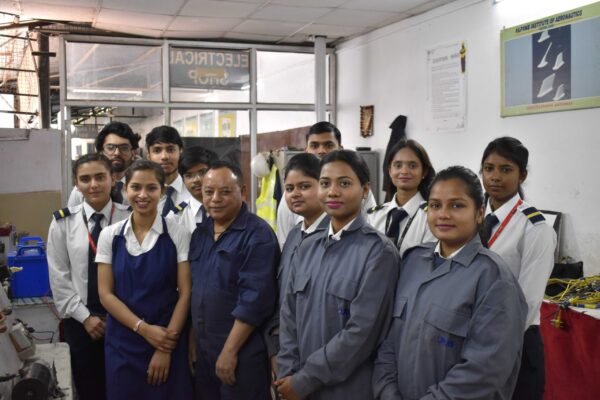
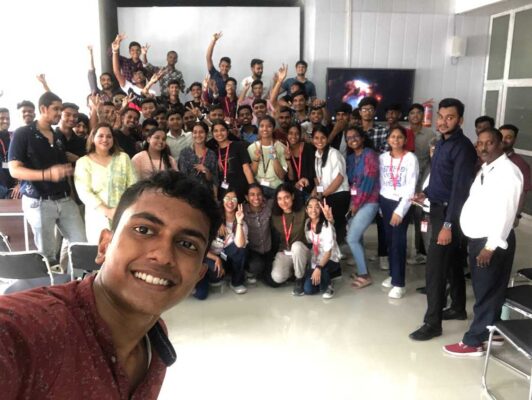
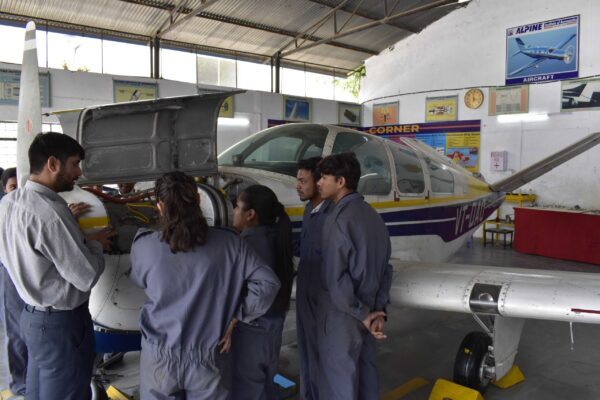
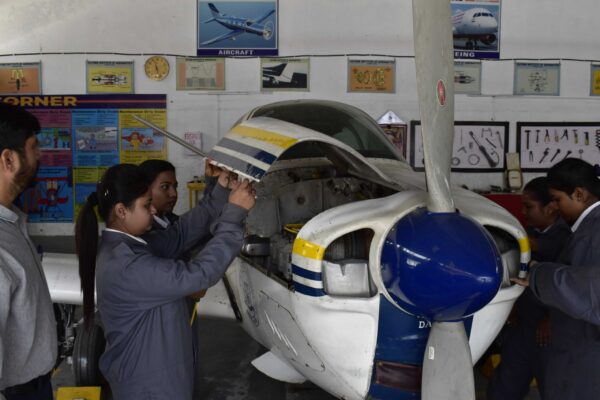
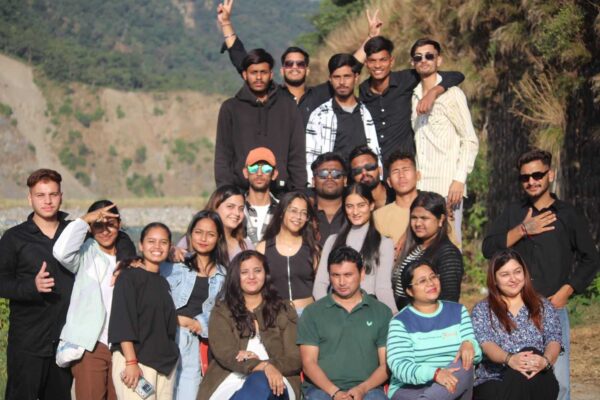
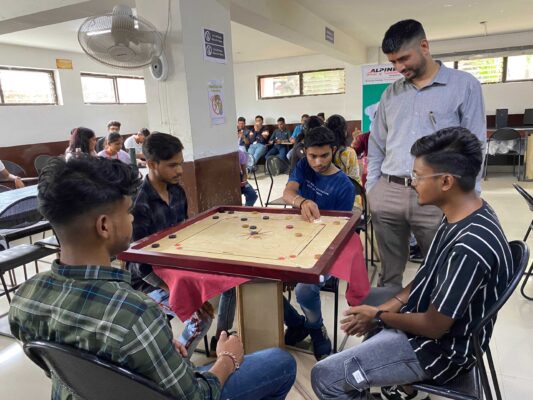
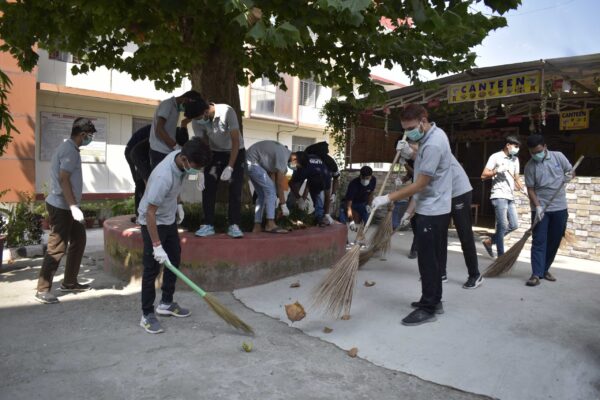
Frequently Asked Questions
A Bachelor of Computer Applications (BCA) degree opens up various career prospects in the field of information technology and computer science. Computer Programmer, Software Developer, Network Engineer, System Analyst, IT Consultant, Data Analyst and Software Tester are the BCA job profiles a student is eligible to apply for after completing the BCA course. Google, Microsoft, IBM, TCS, and HCL are the top recruiters of BCA graduates in India. They offer BCA jobs with a salary package of INR 4-10 LPA. Not only in India, but BCA jobs offer economic payment packages and a chance to work in abroad. Currently, every government organization utilizes computer applications and software for which they require BCA graduates.
A BCA degree can provide individuals with a range of benefits in the field of computer science and information technology.
- Core Knowledge in Computer Science: BCA programs generally cover core computer science subjects such as : Programming language, Data Structures, Algorithms & Database Management.
- Programming Skills: BCA graduates often acquire strong programming skills in languages like C, C++ and Java etc.
- Database Management Skills: BCA programs usually include courses on database management systems to understand how to design, implement & manage databases.
- Web Development Skills: BCA programs include HTML, CSS and JavaScript skills.
- Networking Knowledge: Understanding networking concepts is essential in today’s interconnected world.
- Job Opportunities: BCA degree holders are eligible in various IT roles such as
- Software Developer, Web Developer, System Analyst & Database Administrator etc.
The specific requirements for admission to BCA colleges in Dehradun may vary slightly from one institution to another.
- Educational Qualifications: Candidates should have completed their 10+2 examination from a recognized board. They should have studied Mathematics as a subject in their 10+2.
- Minimum Percentage: This percentage can vary, but it is often around 45-50% in the qualifying examination.
- Entrance Exams: Some BCA colleges may conduct entrance exams for admission.
- Application Process: Candidates need to submit a completed application form along with the required documents.
- Merit-Based Admission: Some colleges may offer merit-based admissions, considering the candidate’s academic performance in the qualifying examination.
- Counselling Process: After clearing the entrance exams, candidates may need to participate in a counselling process.
BCA programs aim to provide a comprehensive understanding of computer science concepts and their practical applications. A BCA program generally covers:
- Programming Languages: BCA programs include programming languages such as C, C++, Java and Python.
- Data Structures and Algorithms: Students learn about data structures (Arrays, Linked List, Trees & Algorithms) & algorithms.
- Database Management Systems: BCA covers the basics of database design, implementation, and management like Relational Databases & SQL.
- Operating System: Operating system includes Processes, Memory Management, File Systems and Security.
- Computer Networks: It includes the networking concepts, Protocols, and Communication technologies.
- Web Development: BCA programs introduce web development concepts like HTML, CSS, JavaScript & Server-Side Scripting languages.
- Software Engineering: Students learn about Software Development Methodologies, Project Management and Software Development Life Cycle.
- Computer Architecture and Organization: Understanding the basic architecture of computers including CPU, memory, Architecture, Memory, Input / Output.

